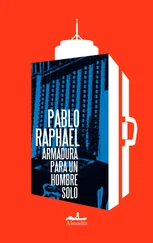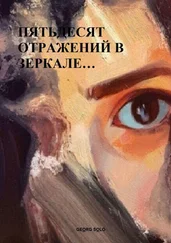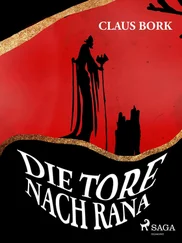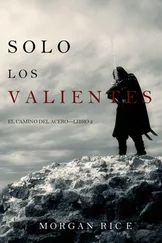They climbed up high, and the valleys were hazy below. There was snow on the ground and patches of ice in the shadows. In the back of the car, Kakha’s dog sat watching the flashing landscape, front paws spread against the bumps.
‘The big countries need Georgia to be weak,’ said Kakha. ‘Do you think the Americans could just march armies in here to guard their pipelines if we were a normal, stable country? They keep us on the brink of crisis, so there’s always an excuse to come in. That’s why people in our country are so insane: they know they’re only raw material.’
‘But that’s why we’re stronger than everyone else. We know how the world is. We know the fairy tales aren’t real.’
Kakha said,
‘There are many who are resentful that we own the borders, and they’ll use the chaos to try and take that away. That’s when we need an army. Our oil, our mines, our drugs — they all need proper military protection.’
The rolling hills were becoming more icy and rugged, and the pylons more precarious in their perch. There was an occasional corrugated-iron village.
‘The site is up there,’ said Kakha, pointing as the car turned off the road. ‘It used to be a Soviet training base. It’s a natural fortress. Look at the visibility it has.’
They drove up the slope to a barbed-wire entrance. Armed guards opened the gates, and the Landcruisers drove through. In the distance were two helicopters, their blades collapsed, graceful in a dusting of snow. There was a generator building and soaring military radar. There were half-buried armoured vehicles and a series of pitted walls.
They got out of the car. Kakha opened the back and the dog bounded into the distance. The men in the other cars spread out to guard the site. The peaks were vast and silent, and the place was utterly alone.
‘Watch the dog run,’ Kakha said.
Khatuna sighed. ‘Nothing else is real when you see a mountain.’
‘If you carry on up the road you get to Mount Kazbek,’ said Kakha. ‘Chechnya and Dagestan are right over there. You are standing in a secure site in the middle of a massive zone of war. That’s why I grabbed this place, as soon as the USSR moved out.’
He inhaled deeply, and kicked an old mortar shell sunk in the grass.
‘It’s the most beautiful place I’ve ever seen,’ said Khatuna.
‘Those are the firing ranges,’ Kakha said, pointing. ‘They’re derelict. We need to take them down. Probably the whole thing will come down.’
They wandered slowly across the site, enjoying the feeling of clean, cold air in their lungs. Kakha made for the entrance of the main building, a huge box-like concrete structure. Inside, a light bulb was smashed by the door, and sections of the ceiling had collapsed, leaving spewing wires. Fires had left sooty stains up the walls. A torso from an anatomical model was propped up against a pillar, its ruddy tendons dulled with dust. On the blackboards there were diagrams from ancient seminars, and vast crinkled maps showed the world as it had been thirty years earlier.
They went up the stairs, which opened out into a concrete expanse, walled on one side with glass. Rows of welded seats with numbers painted on the back were scattered haphazardly, and a giant hammer and sickle, cut crudely from steel, hung askew on the wall.
They stood at the window looking over the plateau below them, flecked with thistles and rusting metal, and surrounded by a high wall. Beyond, the mountains shone through the mist.
‘No government will interfere with us here,’ said Kakha. ‘It’s easy to guard. I’ve got rocket launchers stored here, and surface-to-air missiles. I’ve got small arms and chemical weapons. There’s no problem with men: this region is crawling with soldiers who want to make money. I’ve hired top-class instructors from South Africa and England. They’ve been in Angola and Congo. They trained both sides in the Yugoslav war. You see? All the pieces are in place. We’re talking about the most advanced private army on the continent.’
‘You’ve been planning this for a while,’ said Khatuna.
‘I didn’t want to tell you before. Now you know everything.’
The dog appeared at the top of the stairs and ran over to Kakha, panting and dribbling on the floor.
‘If it’s all as you say,’ she said, ‘we can hire this army out. It will pay for itself.’
‘It will do more than that! Just think about it for a moment. We have America, Russia and China building pipelines and nuclear installations with totally inadequate military back-up. We have — what? — forty conflicts in the region, many of them already armed. We have bankrupt national armies, twenty years out of date — the men don’t even have uniforms. You see what I mean? If you can’t make money from a situation like that you’re a fool. Our army will be equipped and trained for next-generation warfare, and governments and corporations will be queuing up to use it. This is business.’
Khatuna leaned her head on his shoulder. They looked out together at the mountains, and the haphazard gathering of Landcruisers parked below. The peaks had begun to run orange in the late afternoon light. Khatuna said,
‘I feel better, coming here.’
Kakha put his arm around her.
‘I’ve been so worried,’ she said. ‘With this baby on the way, I think all the time about security. I never cared so much before.’
‘Look around you,’ said Kakha. ‘There is nothing to be afraid of anymore.’
For a while they stood there, close together, looking out at the Caucasus mountains. The Rottweiler sat alert by their side, staring at the lines of birds flying towards the golden horizon.
11
SITTING IN THE BACK SEAT of her Mercedes, Khatuna saw a flock of pigeons take off from the roof of a building and wheel dizzyingly in the sky above.
The car swept past a big poster of Nata Sabadze, an advertisement for her upcoming concert. It showed her walking in the rain over a bridge in Moscow, intense against the romance of the old Stalinist buildings.
Khatuna was coming from a meeting with an arms dealer. She was working full-time on the military side of the business. In her pregnancy, she had become more preoccupied with security.
People were strolling in the streets as normal: groups of young men in leather jackets whiling away their unemployment, old women selling sweets and soft drinks by the side of the road, people queuing conversationally for the baker, whose shop was marked by an old loaf hung on a string. But it all seemed different today. She felt she was seeing her city like a surveillance satellite, with eyes that had no feeling. The clouds above had shaggy claws.
‘Drive quickly,’ she said to the driver.
The powerful Mercedes screamed past the other traffic, and on to the hill road that led up to the house. Something was indeed unusual, for there were cars parked haphazardly outside the gates, and here too the pigeons were flying in great, agitated circles. The car raced into the compound and Khatuna jumped out while it was still moving, her papers left unconsidered on the back seat. She ran into the house and the first thing she saw was Vakhtang.
‘They shot Kakha! Kakha is dead!’
Vakhtang buried his head in her neck, howling.
‘Kakha is dead!’
There was a great commotion outside, cars braking and everyone shouting directions, and four puffing men carried Kakha in and laid him on the floor. His head was bundled in his raincoat, which they unwrapped to show his face, and the cooped-up blood ran out over the floor. The shot had hit him in the forehead and most of the back of his head was missing. Vakhtang threw himself on the body, screaming. Every mobile phone was ringing, and Khatuna thought to herself,
Читать дальше
Конец ознакомительного отрывка
Купить книгу












